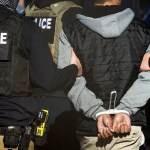It was one scandal too many.
After emails emerged this week suggesting that Prince Andrew had been in contact with convicted sex offender Jeffrey Epstein for longer than he had previously admitted, the House of Windsor has finally taken action to shield the monarchy from years of tawdry headlines about Andrew's dodgy friends and shady business dealings.
Buckingham Palace on Friday released a statement from Andrew saying he had agreed to give up the use of his last remaining royal titles to ensure the ongoing allegations against him “do not distract from His Majesty's work.”
This week's revelations demonstrated that Andrew had committed the unpardonable sin of misleading the British public, said Craig Prescott, an expert on monarchy and constitutional law at Royal Holloway University in London.
“I believe that saying something that is not true is the straw that broke the camel’s back,” he said.
Signs of a new direction
The move comes as Charles, 76 and undergoing treatment for an undisclosed form of cancer, works to ensure the long-term stability of the monarchy under the leadership of his son and heir Prince William.
William recently gave an interview outlining his vision for the monarchy, saying the institution needs to change to ensure it is a force for good.
“In some ways, Prince Andrew was the opposite of that,” Prescott said. “And in a modern monarchy there is no place for this.”
Andrew, 65, is the second son of the late Queen Elizabeth II. He spent more than 20 years as a Royal Navy officer before leaving to take up his royal duties in 2001.
Following Friday's announcement, Andrew will no longer use his remaining royal titles, including Duke of York, although he technically retains them. Formally stripping him of these titles would be a labor-intensive process requiring parliamentary action.
A long time is approaching
Andrew's ouster ends a process that began in November 2019, when he abandoned all of his public duties and charitable activities.
It was prompted by a disastrous interview Andrew gave to the BBC as he tried to deny media reports of his friendship with Epstein and refute allegations that he had sex with 17-year-old girl Virginia Giuffre, whom Epstein trafficked in 2001. The prince was widely criticized for showing no empathy for Epstein's victims and offering improbable explanations for his friendship with the disgraced financier.
The interview also sowed the seeds of shock this week when Andrew told the BBC he cut off contact with Epstein in December 2010.
British newspapers reported on Sunday that Andrew wrote an email to Epstein on February 28, 2011. Andrew wrote a note after resuming coverage of the Epstein scandal, telling him they were “in this together” and would “have to rise above it.”
Andrew recently faced another barrage of sordid stories as newspapers published excerpts from Giuffre's posthumous memoir, which will be published on Tuesday. Giuffre committed suicide in April at the age of 41.
In 2022, Andrew reached an out-of-court settlement with Giuffre after she filed a civil lawsuit against him in New York. Although he did not admit wrongdoing, Andrew acknowledged Giuffre's suffering as a victim of sex trafficking.
Feed on the front page for the wrong reasons
The prince has been the subject of tabloid press since at least 2007, when he sold his home near Windsor Castle for 20% over the £15 million asking price. The buyer was reportedly Timur Kulibayev, the son-in-law of Nursultan Nazarbayev, then the president of Kazakhstan, raising fears that the deal was an attempt to buy influence in Britain.
Last year, a court case revealed Andrew's relationship with a businessman and suspected Chinese spy, who was banned from entering the UK as a threat to national security. According to court documents, authorities were concerned that the man might have abused his influence over Andrew.
While the palace said Andrew had decided to renounce his royal titles, royal commentator Jenny Bond said the King and Prince William had put “enormous pressure” on him.
“We could say he fell on his sword, but I think he was pushed onto it,” Bond told the BBC. “I don’t think Andrew, a very arrogant man who is very, very in love with his status, would have made that decision without a lot of pressure.”
Isolating the monarchy at a delicate moment
While the cumulative weight of the scandals surrounding Andrew has demanded a response from the royal family, this week's revelations come at a particularly sensitive moment for the king as he prepares for a state visit to the Vatican, where he is expected to pray alongside Pope Leo XIV.
The visit is very important for Charles, who has made the unification of faiths an important part of his “mantra,” said George Grosz, an expert on theology and monarchy at King's College London.
“I think this was the quickest, really the quickest way to further demote him without having to go to parliament,” Gross said. “Even if parliament approved, it takes time.”
Charles may also have been motivated by a desire to defend the work of Queen Camilla, who has made tackling domestic violence one of her main issues, and the Duchess of Edinburgh, who has sought to combat sexual violence in war zones such as the Congo.
The king hopes the move will finally draw a line between Andrew and the rest of the royal family, Prescott said.
“If there are allegations or anything else comes out, it will be on Prince Andrew,” he said. “They severed the connection between Prince Andrei and the monarchy as an institution.”








